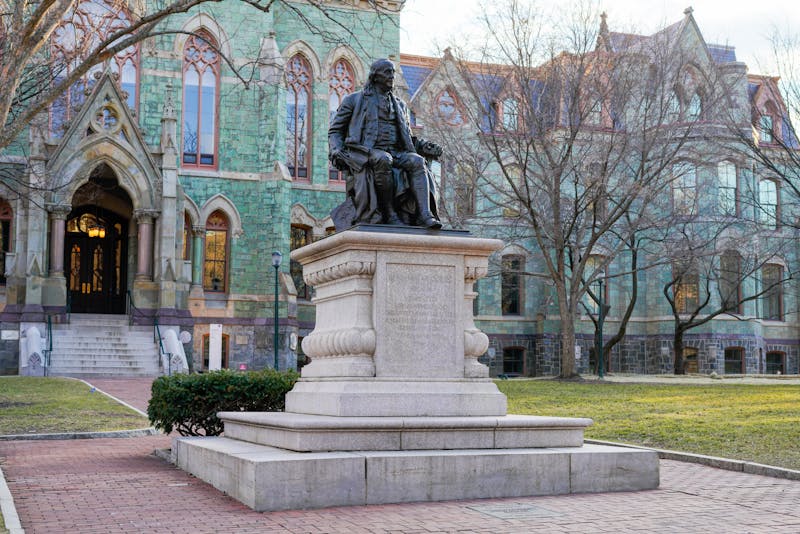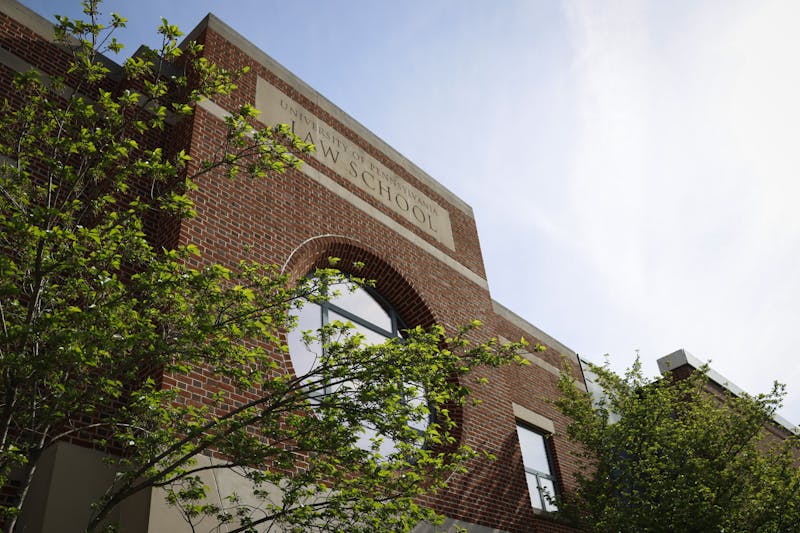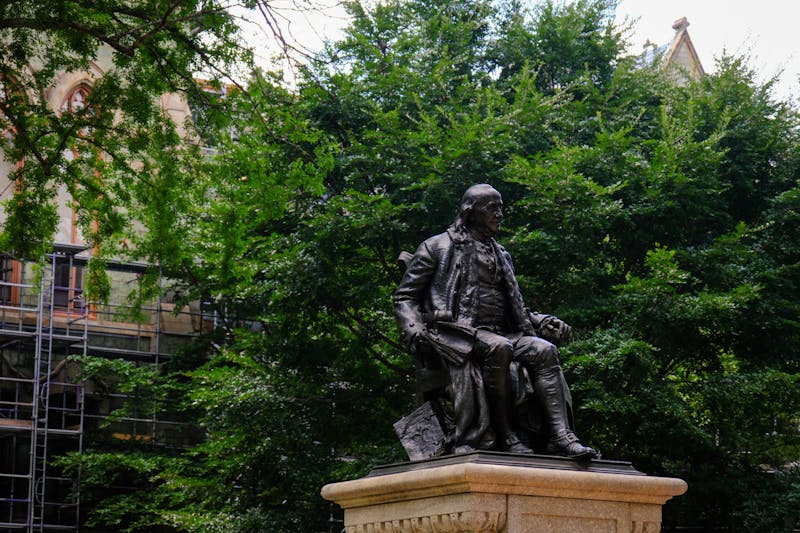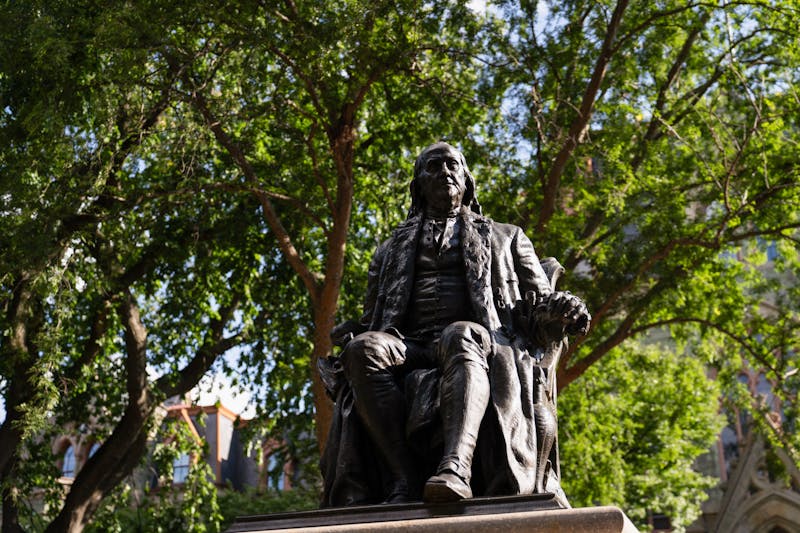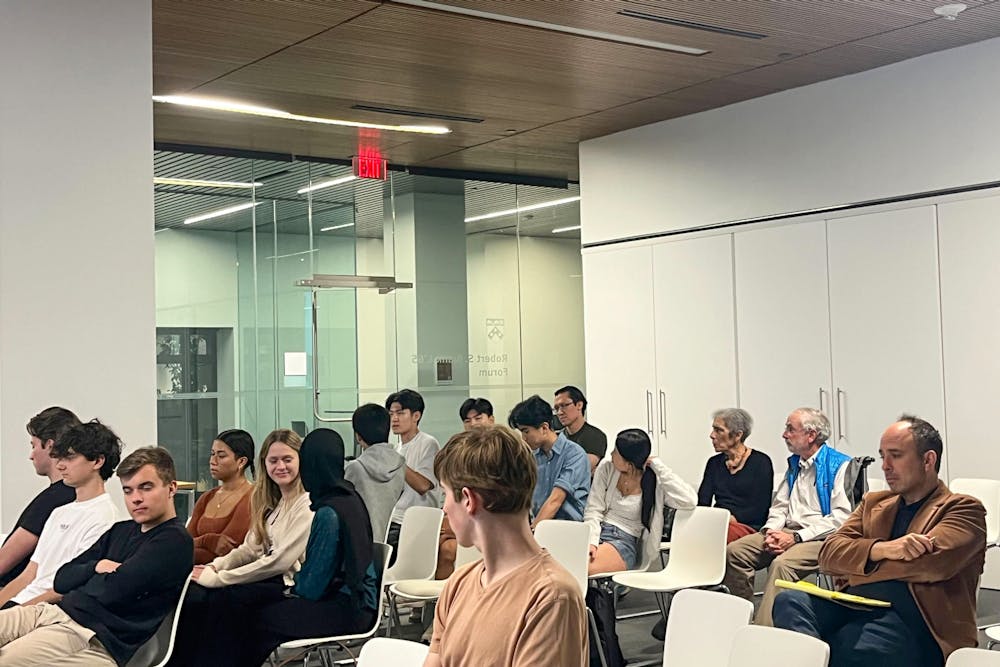
University of Pennsylvania Carey Law School professor Amy Wax criticized Penn for engaging in “private censorship” at a talk by former American Civil Liberties Union President Nadine Strossen, whom the Government and Politics Association hosted on Nov. 6.
Strossen’s talk at the Perelman Center for Political Science and Economics, titled “Free Speech: Rights and Wrongs,” covered historical and modern controversies related to free speech on college campuses, including Penn’s. The event drew over 20 students and faculty and was held in collaboration with media nonprofit organization Free To Choose Network, the Penn Alumni Free Speech Alliance, Voices for Liberty, and the Andrea Mitchell Center for the Study of Democracy.
Wax spoke during the question and answer section of the talk about the state of free speech at private universities such as Penn.
Wax is currently sanctioned by the University for comments that were “serious violations of University norms and policies,” according to a June 2023 letter from the hearing board assigned to her case. The Daily Pennsylvanian previously reported that the hearing board’s recommended sanctions included a one-year suspension at half pay, the removal of Wax’s named chair and summer pay, and a requirement for Wax to note in public appearances that she is not speaking on behalf or as a member of Penn Carey Law.
After attendees asked Strossen questions regarding the legal implications of hate speech and protections for individuals targeted by offensive language, Wax asked her question. She began by paraphrasing John Stuart Mill’s book “On Liberty,” which discusses the distinction between official government censorship and informal “social ostracism.”
“We now have private universities that are essentially canceling people whenever they feel like it,” Wax said. “And it’s not just me … but hundreds of people throughout the country, and it’s very hard to see how one can bring them to heel.”
She then proceeded to describe an alleged conversation that took place between her lawyer and Penn’s Assistant General Counsel “about a year ago” regarding the University’s relationship to free speech.
“The Assistant General Counsel said, ‘We can do anything we want. We can contradict ourselves. We can embrace free speech in our pronouncements, but violate it any time we feel like it, we can lie, we can misrepresent’,” Wax said, describing the conversation.
A University spokesperson wrote in a statement to the DP that Wax’s statement “is absolutely untrue.”
Wax declined to provide a comment to the DP at the event.
In response to Wax’s question, Strossen noted that while private institutions such as Penn are not bound by the First Amendment, Penn making a promise or pronouncement to protect students and faculty's free speech rights can create a contractual obligation.
“One type of lie that is punishable is a fraudulent statement — an intentional or reckless misstatement that you make to somebody intending them to rely on it,” Strossen said.
Strossen served as ACLU president for 18 years and currently serves on its advisory board, as well as on the boards of Academic Freedom Alliance, Heterodox Academy, and the National Coalition Against Censorship. She is currently working with Free To Choose Network on “Free To Speak,” a documentary series also centered on issues related to free speech.
Strossen is also a senior fellow at the Foundation for Individual Rights and Expression, which ranked Penn the fourth-worst college in the nation for the status of free speech on campus in September.
College first year Tony Kim said that Wax’s appearance at the event made the conversation “more dynamic,” but that Penn was acting within its authority to sanction her.
“Because this is a private institution, the Penn administration can censor that speech,” Kim said. “The Penn board basically represents the opinion of the Penn community.”
Strossen told the DP after the event that, from what she has read, University administrators are “pillorying” Wax in punishing her for comments made outside of her academic capacity.
“I say that because Penn, even though it’s a private institution not bound directly by the First Amendment, has professed that it will commit itself to adhere to First Amendment principles,” Strossen said.
She conceded that recent allegations against Wax have accused her of directly targeting students, which would justify the sanctions. However, Strossen said that she finds these allegations suspicious, saying that complaints against Wax’s outside speech had been raised “for years,” but that formal claims of harassment have only surfaced recently.
Strossen added that she is “so grateful that there are student organizations here who are interested in promoting free speech.”
The Daily Pennsylvanian is an independent, student-run newspaper. Please consider making a donation to support the coverage that shapes the University. Your generosity ensures a future of strong journalism at Penn.
Donate






